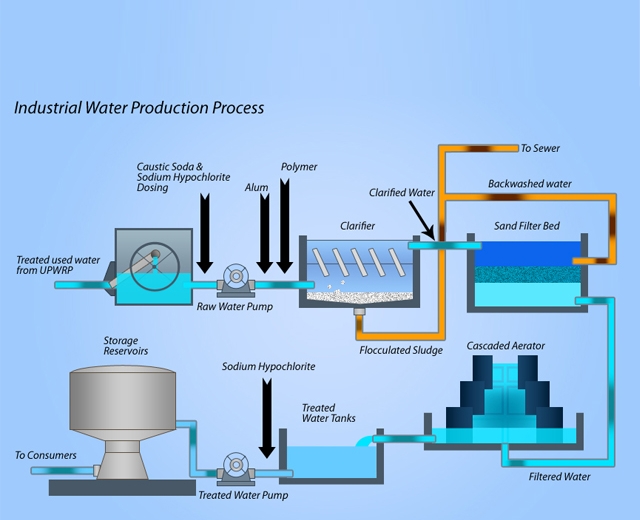Improve Drinking Water Security with a High-Quality Water Purification System
Wiki Article
Why a Water Purification System Is Necessary for Tidy, Safe Water
Access to tidy, safe water is an essential human right and a keystone of public wellness. A water purification system stands as a critical option to minimize these risks, ensuring that people and areas can access safe alcohol consumption water.Relevance of Clean Water
Accessibility to tidy water is a fundamental necessity for human wellness and well-being. Contaminated water can lead to major health and wellness issues, including stomach illnesses, cholera, and dysentery, particularly in vulnerable populaces such as kids and the senior.Additionally, clean water is vital for cleanliness and hygiene practices, which are essential in protecting against the spread of transmittable illness. Sufficient water system supports correct cleanliness centers, advertising a healthier environment. In addition, access to safe water affects socioeconomic aspects, as it makes it possible for areas to take part in commercial and agricultural activities, inevitably adding to economic growth.
In several areas, the lack of tidy water worsens hardship and inequality, more impeding progress towards lasting development objectives. As a result, guaranteeing accessibility to tidy water is not just a public health important however likewise a foundation for social equity and financial development. Initiatives to enhance water quality and facilities have far-reaching benefits, fostering healthier areas and enhancing high quality of life.

Common Contaminants in Water
Making certain the schedule of clean water is threatened by various pollutants that can compromise its security and top quality. The visibility of microorganisms, such as bloodsuckers, microorganisms, and viruses, positions substantial health dangers, specifically in locations doing not have appropriate cleanliness. These microbes can bring about waterborne illness, causing serious illness or perhaps death.Chemical pollutants also offer a critical issue. Heavy metals, consisting of lead, mercury, and arsenic, commonly go into water products with commercial discharges or corroded pipes. These materials can accumulate in the body in time, causing lasting wellness problems such as neurological damage and developmental problems.
In addition, agricultural overflow introduces pesticides and plant foods right into water systems, which can interfere with communities and negatively influence human wellness. Nitrates, generally discovered in plant foods, can create serious problems like methemoglobinemia, particularly in infants.
Benefits of Water Filtration Solutions
Identifying the vital demand for risk-free drinking water, water filtration systems offer a myriad of benefits that enhance public wellness and ecological sustainability. Primarily, these systems successfully eliminate harmful contaminants, including germs, viruses, heavy steels, and chemicals, guaranteeing that the water eaten is devoid of toxins and virus. This reduction in contaminants dramatically lowers the threat of waterborne diseases, promoting total community wellness.In enhancement to wellness benefits, water purification systems add to ecological sustainability by minimizing reliance on mineral water, which usually produces excessive plastic waste. By utilizing a filtration system, homes can reduce their carbon footprint and contribute to a more lasting environment. These systems can improve the preference and odor of water, making it much more tasty for day-to-day consumption.

Different Sorts Of Filtration Approaches

One common approach is reverse osmosis, which uses a semi-permeable membrane to separate water from dissolved solids and impurities. This process efficiently minimizes impurities, including heavy metals and chemicals. An additional widely used strategy is ultraviolet (UV) sanitation, which utilizes UV light to counteract viruses and microorganisms, making them harmless without using chemicals.
Activated carbon filtering is another preferred technique, using carbon to adsorb natural substances, chlorine, and undesirable odors, boosting preference and odor quality. Purification, a process that includes boiling water and condensing the steam, successfully eliminates impurities and minerals yet might need even more energy contrasted to other approaches.
Ion exchange is frequently used to soften water by Click This Link changing calcium and magnesium ions with sodium or potassium ions. Each method has its constraints and benefits, making it necessary to recognize their functionalities and performance in resolving specific water quality issues - Water Purification System. Inevitably, picking the ideal purification approach is critical for making sure tidy and safe drinking water
Picking the Right System
Picking an ideal water purification system needs mindful consideration of numerous factors, consisting of the certain impurities present in the water supply, the volume of water needed, and the desired filtration technique. First, it is crucial to carry out a water top quality examination to recognize pollutants such as bacteria, heavy metals, or chemical contaminants. This details will direct you in choosing a system that effectively targets those certain impurities.
Next, evaluate your family's daily water intake to figure out the system's capacity. Equipments are readily available in various sizes, from point-of-use filters for alcohol consumption water to whole-house devices that cleanse all water entering your home.
Moreover, think about the purification technique that best fits your requirements. Reverse osmosis is extremely efficient for removing a vast array of contaminants, while UV purification is excellent for removing microorganisms.
Final Thought
In verdict, the application of water filtration systems is crucial for ensuring accessibility to risk-free and tidy water. By comprehending the value of clean water and the advantages click resources of numerous purification approaches, communities can make informed decisions to protect their health and wellness and advertise socioeconomic stability.Identifying the essential requirement for secure alcohol consumption water, water purification systems supply a myriad of benefits that boost public health and environmental sustainability.In enhancement to health advantages, water purification systems contribute to ecological sustainability by lowering dependence on bottled water, which commonly generates extreme plastic waste. Ultimately, the adoption of water filtration systems is an aggressive step towards making certain tidy, secure water for future generations while securing public wellness and the atmosphere.
Picking a suitable water filtration system requires cautious factor to consider of various variables, including the certain impurities present in the water supply, the volume of water required, and the desired purification technique.In final thought, the execution of water purification systems is critical for making sure accessibility to tidy and safe water.
Report this wiki page